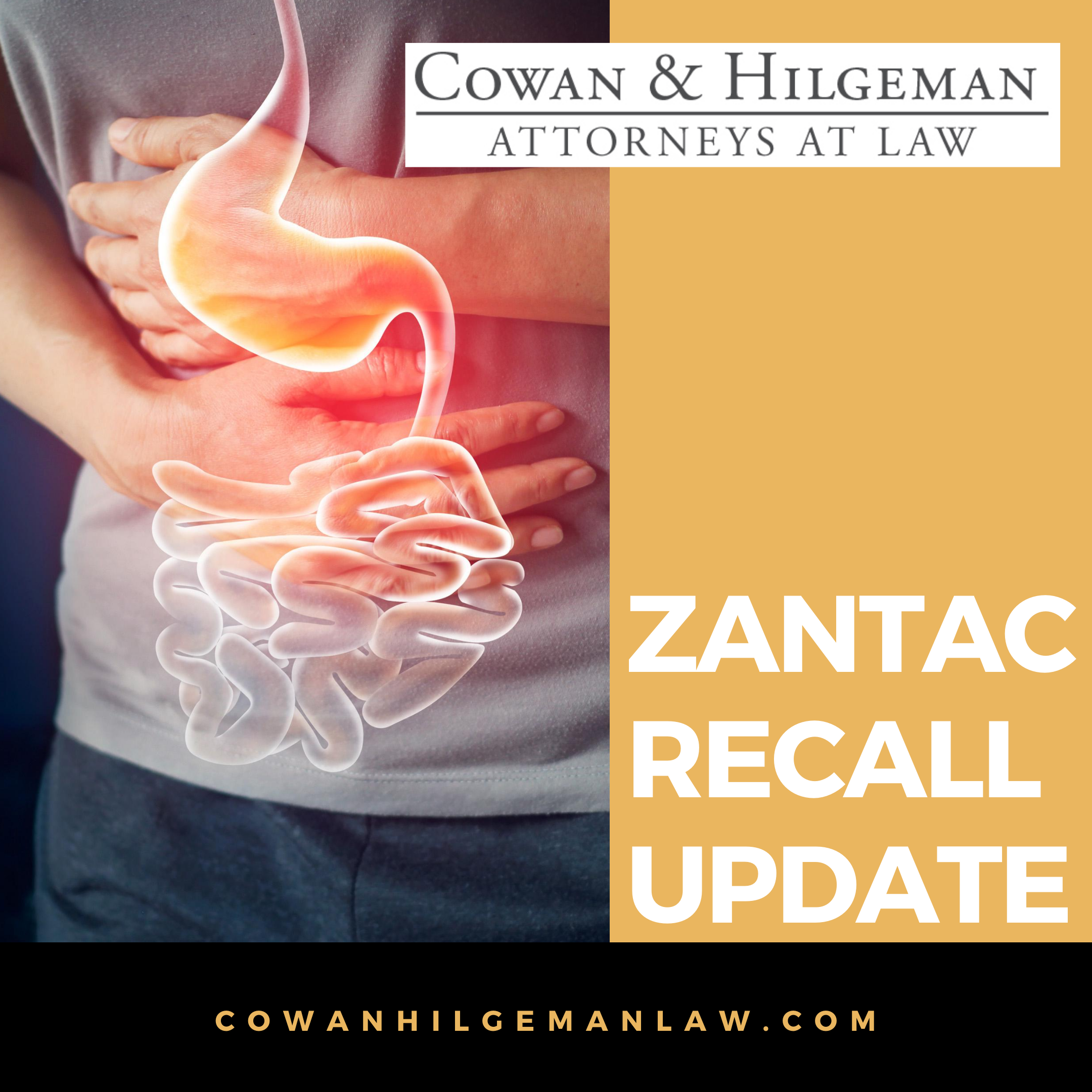Do you suffer from heartburn? Do you typically rely on the over-the-counter medicine commonly known as Zantac to relieve this pain? Have you been diagnosed with cancer? If so, you may have a case due to the Zantac recall.
There have been some ripples in the scientific community over potentially unacceptable levels of a potential carcinogen in drugs like Zantac. On April 1st, 2020, The U.S. Food and Drug Administration issued a recall for various Zantac brand and generic heartburn products. If you or a loved one has taken Zantac, please read on.
Over the course of the last year, there has been concern centered on the drug ranitidine (known most commonly as Zantac) for the presence of N-Nitrosodimethylamine (NDMA).
What is ranitidine or NDMA and why are they so important?
Ranitidine is a type of drug that is labelled as an H2 histamine blocker. This drug is typically used to prevent or relieve heartburn, and is made available in both over the counter and prescription strengths. It has also been used in the medical field to treat some stomach ulcers or lining problems. NDMA is thought to be a probable human carcinogen.
Carcinogens are substances that can cause cancer in living tissue. So it is easy to see why the FDA would be concerned about reports of these carcinogens in such a commonly used household product. However, it should be noted that while there is cause for concern, the studies that have led to these conclusions are based on tests done on animals, not humans. According to Harvard Health Publishing ¨Although classified as a probable carcinogen, NDMA may cause cancer only after exposure to high doses over a long period of time.¨
This first was brought to the FDAś attention when an independent laboratory test from Connecticut noted that they found the presence of NDMA under varying conditions. This report spurred the FDA to warn the public in September of 2019 that they may want to consider trying other brands of heartburn medication*, and prompted further testing. Walgreens, CVS, and other major drugstore chains started pulling the products from shelves in October 2019, and a few major producers performed a voluntary recall.
Health officials in Canada and France quickly issued statements recalling these products from shelves while further testing was ongoing. Not much more was heard about the drug for a few months in the USA, then an official recall was issued for Zantac and all products containing ranitidine on April 1st, 2020. The potential risks involved with long term use of the drugs are not entirely known at this time, but there have been possible links to pancreatic and colon cancer.
If you have taken Zantac for heartburn, you may want to consider speaking with your doctor about taking alternative medicines*, or embarking upon lifestyle changes to prevent heartburn maladies. Beyond changing your approach to handling heartburn, you should be aware that class action lawsuits have been filed in several states. If you think you might have a case linked to your use of ranitidine, you should contact Cowan & Hilgeman for a consultation today.
*According to the FDA, ¨To date, the FDA’s testing has not found NDMA in famotidine (Pepcid), cimetidine (Tagamet), esomeprazole (Nexium), lansoprazole (Prevacid) or omeprazole (Prilosec).¨
Source:

